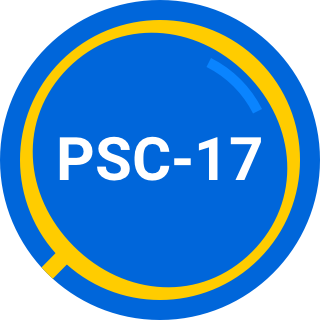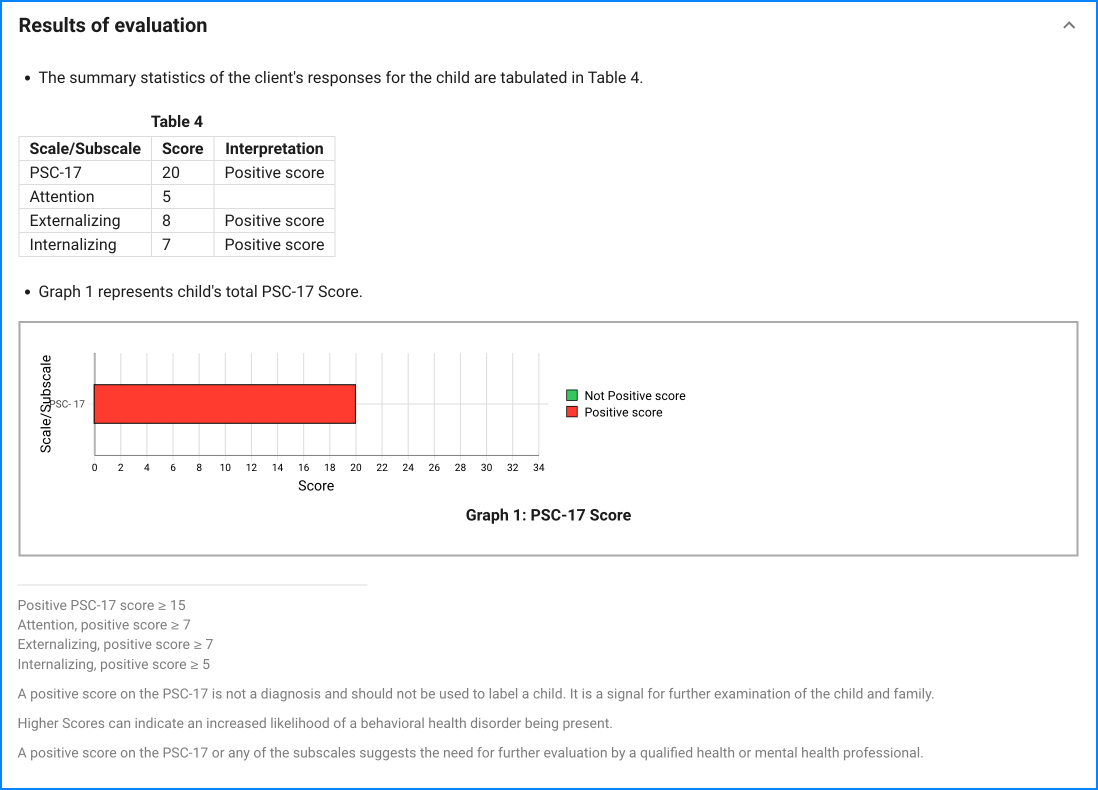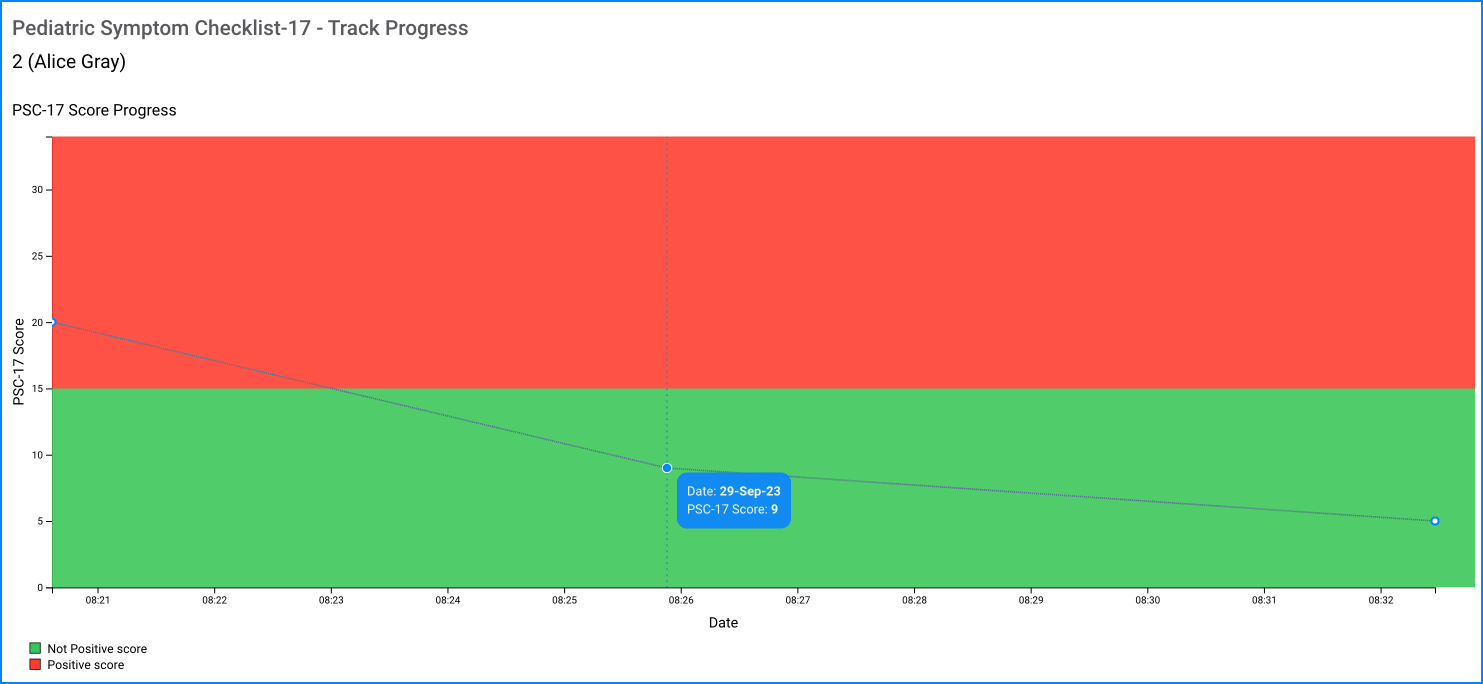The PSC-17 is a shortened version of the PSC-35 and consists of 17 items.
Each item is rated as “NEVER,” “SOMETIMES,” or “OFTEN” present and scored 0, 1, and 2 respectively.
The total score is calculated by adding together the score for each of the 17 items. Positive PSC-17 score > 15
Attention, externalizing and internalizing subscale scores are calculated by adding the score for each corresponding symbol:




